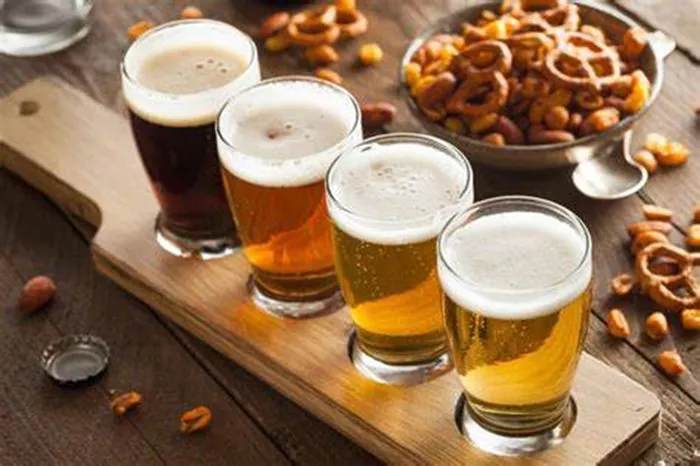Arkansas’ craft beer sector is experiencing notable growth, defying a nationwide decline in production and brewery operations, according to newly released data from the Brewers Association.
Industry experts attribute the state’s upward trajectory to untapped market potential and recent legal changes. Lacie Bray, president of the Arkansas Brewers Guild and co-founder of Ozark Beer Company in Rogers, emphasized that Arkansas has more capacity for expansion than many other states due to historical limitations on alcohol production and sales.
For decades, brewing was prohibited in large parts of Arkansas due to dry county laws. That began to change in 2019 when legislation allowed breweries to operate in dry counties under specific restrictions. Currently, seven such permits have been issued, according to Scott Hardin, spokesperson for the state’s Department of Finance and Administration. Benton County, for instance, only began building a craft brewery scene after voters approved its transition to a wet county in 2012.
Brewers across the state are adapting to shifting consumer habits by focusing on community engagement and diverse offerings. “Brewers in the Bible Belt have always had to focus on craftsmanship and community,” Bray said, noting that the industry now relies on more than just beer sales. Breweries are increasingly collaborating with food trucks, creating non-alcoholic options, supporting local causes, and hosting events to attract patrons.
Bill Adams, co-owner of GoatLab Brewery in Lowell, pointed to consumer preference as another driver of growth. Many breweries are now producing lighter, more approachable beers that resemble mainstream lagers, offering an alternative to high-alcohol, hop-heavy IPAs.
Economic indicators reflect the state’s momentum. The craft beer industry contributed $518 million to Arkansas’ economy in 2024, up from $503 million the previous year. That translates to a per capita impact of $231, an increase from $224, according to the Brewers Association. The number of active breweries in the state rose from 56 to 58, and production increased from 52,809 to 53,696 barrels.
However, Arkansas still lags behind in national rankings. It places 40th in breweries per capita, 46th in gallons produced per legal-age resident, and 36th in economic impact.
Strategic partnerships are helping local breweries expand beyond their taprooms. Bray highlighted that Northwest Arkansas’ proximity to major corporations allows for retail collaborations. Walmart, for example, carries Arkansas-made beer in its stores, boosting visibility and sales.
GoatLab Brewery has also benefited from such partnerships. The brewery developed a beer called “Tusk” for the University of Arkansas, with profits supporting student-athlete NIL (name, image, and likeness) initiatives. The collaboration increased GoatLab’s production tenfold—from 40 to 400 gallons in just six months. “Tusk” is now sold at sporting events and liquor stores statewide, with plans to launch at Walmart. A lighter version, “Tusk Light,” is in the pipeline.
Nationally, the craft beer industry is facing headwinds. U.S. production dropped to 23.1 million barrels in 2024, marking a 4% decline—the largest decrease outside the pandemic era. The number of small, independent breweries also fell for the first time in two decades, with 501 closures and only 434 new openings.
Despite the national slump, Arkansas’ brewers remain optimistic, leveraging creativity and community roots to fuel continued growth.
You Might Be Interested In:


